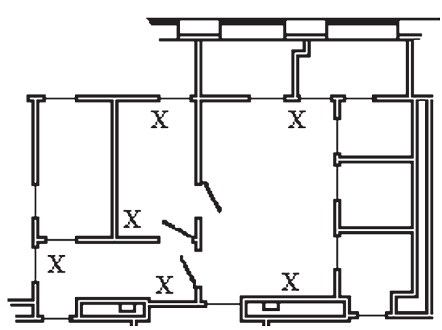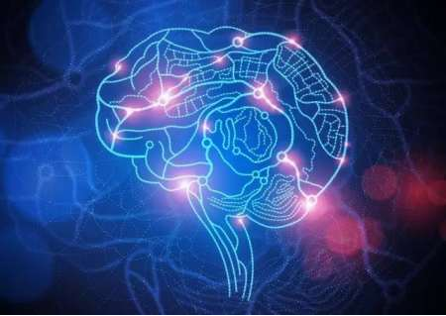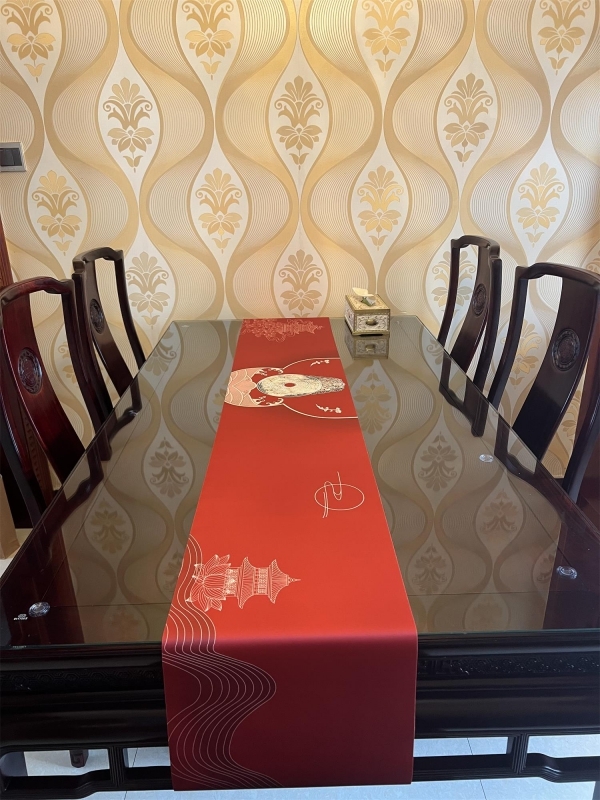"The door effect": Why do I forget things when I go out?Intersection
Author:Institute of Physics of the Ch Time:2022.07.15
Have you ever had such an experience?
Ready to go out, run into the room to get the phone,
After opening the door, what did I just want to find?
When talking with friends very well
You suddenly thought of one thing
But after listening to friends
If you reach your mouth, it becomes:

Mom, I go downstairs to pick up the courier
By the way, take the garbage down
5 minutes later
I hold a bunch of express delivery and a bag of garbage messy in the wind ...

If you have the above phenomenon
don’t worry
You are not alone
These "instantaneous short memory" are called "The Doorway Effect", and American psychologists have found that when people pass a normal door, they may forget something The door can also affect.
Why is this phenomenon called "door effect"?
This has to start with an experiment in 2011 ...
Related reasons for the research and emergence of related experiments
Gabriel A. Radvansky and others of the University of Virgin University have done such an experiment:
There are one or two rectangular tables in each room, with only one table in small rooms, and two tables in large rooms. There are six color building blocks on the table, with cube, sphere, disc, wedge, cross, and cylindrical body. The colors are black, white, red, yellow, green and blue. Volunteers need to pick up an object from the table and put them in the box and cover the lid. Then the volunteers will go to the next table. When the volunteers are in the big room, they only need to complete the same room; and when they are in the small room, they need to pass through the door to enter the next room. In the identification test, volunteers need to determine whether the objects displayed on the computer (such as "red cube") are in the box they just carried, and the computer will record whether the answer is correct and the response time.





Figure 1 Laboratory plane map and six experimental points position
Similarly, volunteers in another experiment completed the above process in the virtual room on the computer.
Both experiments showed that when volunteers passed the door to change the room, the accuracy of the answer was significantly lower than those who completed the above process in the same room, and the response time was longer.

The two experiments above show that no matter whether it is a real room, people will be obviously worse when people only change the room (experiment 1 is a virtual room, and experiment 2 is a real room).

Figure 2 The impact of changing rooms in real and virtual rooms on people's memory
Smith et al. Believe that the "door effect" is caused by different memory coding environments, that is, this forgetting is because there are differences compared with the coding at the context of the retrieval. Different rooms are different contexts. When the environmental context is not the same as the original context, the memory may be worse, because there are fewer available retrieval clues (Smith, Glenberg, Bjork, 1978; Smith vela, 2001).
To test its correctness, Gabriel A. Radvansky and others designed experiments 3. After the volunteers replaced the room, they returned to the original room to recall the items selected, but the results showed that the error rate was still lower than the case without changing the room. This also shows that the emergence of "door effects" is not because of different memory codes, but because of environmental conversion. RADVANSKY will make this memory pattern into an event model, that is, the brain is habitually stored in space as a unit, and the door is usually separated by different spaces. When people pass through the door The memory of the previous space is no longer important, so it is cleared.

Figure 3 The impact of changing rooms, returning, and multiple changes on memory in the virtual room
This is like this
When you finish the calculus
Throw the textbook happily
I didn't expect to encounter it later
You need to use a professional course with calculus
Oliver Baumann, a psychological assistant professor at Bangde University, also believes that it is not the door that triggers the forgotten, but the transition to different environments. For example, in the mall, riding an elevator may not affect our memory, but entering the parking lot from the mall may cause us to forget what we need to buy, because the brain will distinguish the memory from different environments and backgrounds.
Master the "door effect"
(1) Forgetting things out is an efficient form of memory
The "door effect" is not forgotten, but it shows that our brain is actively running. The brain is moderately reducing the burden on ourselves, excluding the interference of other information, and a limited memory space for the new environment, focusing on solving the huge information group facing the present, just to allow us to adapt to changes in the environment faster and notice that we can adapt to the changes in the environment and notice the environmental changes and notice the environmental changes and notice the environment. To its potential risk.

(2) How to avoid the "door effect"
Since the "door effect" is so powerful, how to ensure that you keep in mind the information?
Use physical methods to record things that you do n’t want to forget on paper or on your mobile phone. You can also hold related items in your hands to help us recall the information we need.

If you are looking for a mobile phone, you forget what you want to get, then don't take care of so much, and forget it.

(3) Make good use of the "door effect"
The "door effect" is not harmful but not beneficial. Use the "door effect" to help stimulate your creativity and help you solve the problem. creativity
If you stay in a physical location for too long, the creativity may disappear. When you scratch your cheeks for the experiments, try to change the position between cafes, laboratories, and gyms to constantly confuse memory and keep creativity and thinking.
Changing perspective

Use the door effect to "get out" the situation and get a new perspective. For example, if you encounter problems in your learning, you cannot solve it. Leaving the classroom, scattering, or taking a bath. The changes in the environment will change the way you look at and solve the problem.
Understood!
Go to touch the fish (not
Too complicated version: "Door Effect" is not a recession of memory, but because the brain divides the memory according to space, and deletes the information of the previous space by mistake.

Fast -forward searching for meaning: Use the memorandum to avoid the "door effect"; change the environment is conducive to stimulating creativity and solving problems.
Bleak
Bleak
Bleak
Bleak
References and information
[1]Gabriel A. Radvansky , Sabine A. Krawietz Andrea K. Tamplin (2011) Walking throughdoorways causes forgetting: Further explorations, The Quarterly Journal of Experimental Psychology, 64:8,1632-1645
[2] https://healthformifegr.com/psychology-doorway-effect/
[3] https://www.healthguidance.org/entry/17833/1/What- IS-doorway-Effect.html
[4] https://www.coachmike.live/blog/doorway-effect
[5] https://www.bustle.com/articleS/147188-what-IS-doorway-Effect-heres-dhy-You-CAN- ReMember-eant-MEANT-TO-DO-DO-DO-to-Moant
[6] https://www.techexplorist.com/the-study-explains- -called-doorway-Effect/38266/
Text | Shi Tianying Sun Zejun
Picture | Shi Tianying
Capture | Wang Xinyang
Review | Fu Yujie Chen Xing'an Xu Helin Wang Jiaqing
Does not represent the position of the Institute of Physics of the Chinese Academy of Sciences
If you need to reprint, please contact the original public account
Source: Tanzhen Technology Review
Original title: Tan Zhen Xiao Class | I forgot what I just wanted to do now
Edit: Muyu
- END -
Guangtaili: Establishing more than 2,000 people rescue teams, transshipment passengers nearly 40,000

Recently, the Beijing -Guangzhou Railway road base, slope, equipment, etc. passing...
Cultural and Creative New | Your Qingbo summer solstice exclusive

The hot summer solstice sweat exchanges, the only shallow tea is cool.Summer solst...